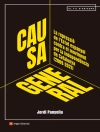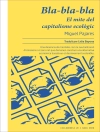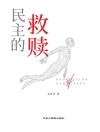In spite of decades of research on toxicants, along with the growing role of scientific expertise in public policy and the unprecedented rise in the number of national and international institutions dealing with environmental health issues, problems surrounding contaminants and their effects on health have never appeared so important, sometimes to the point of appearing insurmountable. This calls for a reconsideration of the roles of scientific knowledge and expertise in the definition and management of toxic issues, which this book seeks to do. It looks at complex historical, social, and political dynamics, made up of public controversies, environmental and health crises, economic interests, and political responses, and demonstrates how and to what extent scientific knowledge about toxicants has been caught between scientific, economic, and political imperatives.
Daftar Isi
List of Figures
Acknowledgements
Introduction: Greatness and Misery of Science in a Toxic World
Soraya Boudia and Nathalie Jas
PART I : KNOWLEDGE, EXPERTISE AND THE TRANSFORMATIONS IN REGULATORY SYSTEMS
Chapter 1. Precaution and the History of Endocrine Disruptors
Nancy Langston
Chapter 2. The Political Life of Mutagens: A History of the Ames Test
Angela N. H. Creager
Chapter 3. DES, Cancer and Endocrine Perturbation: Ways of Regulating, Chemical Risks and Public Expertise in the United States
Jean-Paul Gaudillière
Chapter 4. Managing Scientific and Political Uncertainty. Environmental Risk Assessment in an Historical Perspective
Soraya Boudia
PART II : ACTIVISM AND NON-ACTIVISM: ALTERNATIVE USES OF KNOWLEDGE
Chapter 5. Work, Bodies, Militancy: the “Class Ecology” Debate in 1970s Italy
Stefania Barca
Chapter 6. What Kind of Knowledge is Needed about Toxicant- Related Health Issues? Some Lessons Drawn from the Seveso Dioxin
Laura Centemeri
Chapter 7. From Suspicious Illness to Policy Change in Petrochemical Regions: Popular Epidemiology, Science and the Law in the U.S. and Italy
Barbara Allen
Chapter 8. Guinea Pigs go to Court. Epidemiology and Class Actions in Taiwan
Paul Jobin and Yu-Hwei Tseng
PART III: PUTTING KNOWLEDGE, IGNORANCE, AND REGULATIONN INTO PERSPECTIVE
Chapter 9. Reckless Laws, Contaminated People: Science Reveals Legal Shortcomings in Public Health Protections
Carl Cranor
Chapter 10. Untangling Ignorance in Environmental Risk Assessment
Scott Frickel and Michelle Edwards
Chapter 11. Low Dose Toxicology: Narratives from the Science-Transcience Interface
Sheldon Krimsky
Chapter 12. Unruly Technologies and Fractured Oversight: Towards a Model for Chemical Control for the Twenty First Century
Jody A. Roberts
List of Contributors
Index
Tentang Penulis
Nathalie Jas is a Senior Researcher at the French National Institute for Agricultural Research (INRA). A historian and a STS scholar, her scholarly work analyses the intensification of agriculture and its social, environmental, and health effects. She has co-edited a special issue of History and Technology, “Risk and risk Society in Historical Perspective” (2007), and Toxicants, Health and Regulations Since 1945 (Pickering & Chatto, 2013), both with Soraya Boudia.












